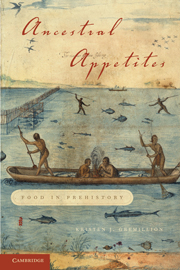6 - Abundance
Published online by Cambridge University Press: 05 June 2012
Summary
There is sublime thieving in all giving. Someone gives us all he has and we are his.
Eric Hoffer, The Passionate State of MindThis was a good dinner enough, to be sure, but it was not a dinner to ask a man to.
Samuel Johnson, quoted in Boswell's Life of JohnsonThat hunger elicits coping strategies is hardly a surprise; after all, survival of the individual, community, or even population is at stake. Responses to scarcity of food have easily recognizable consequences for the organism, and thus for survival and reproductive potential, the engine of natural selection. The impact of hunger on the social realm is perhaps more complex and less easy to discern; nonetheless it is easy to accept that food supply is a key material factor influencing the rise and fall of higher order sociopolitical units such as states.
But what are the consequences of how we cope with abundance? There is no stressor here, but rather a set of opportunities. How a household or a state invests its surplus food may seem not to matter very much, at least in contrast to the potential effects of a food shortage. However, the investment opportunities associated with abundance do have consequences that matter, both for future survival (as in the case of storage) and for the development of social inequality based on wealth and control of resources.
- Type
- Chapter
- Information
- Ancestral AppetitesFood in Prehistory, pp. 93 - 114Publisher: Cambridge University PressPrint publication year: 2011

